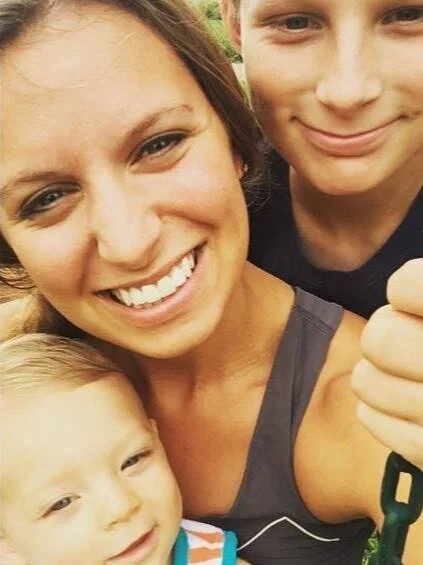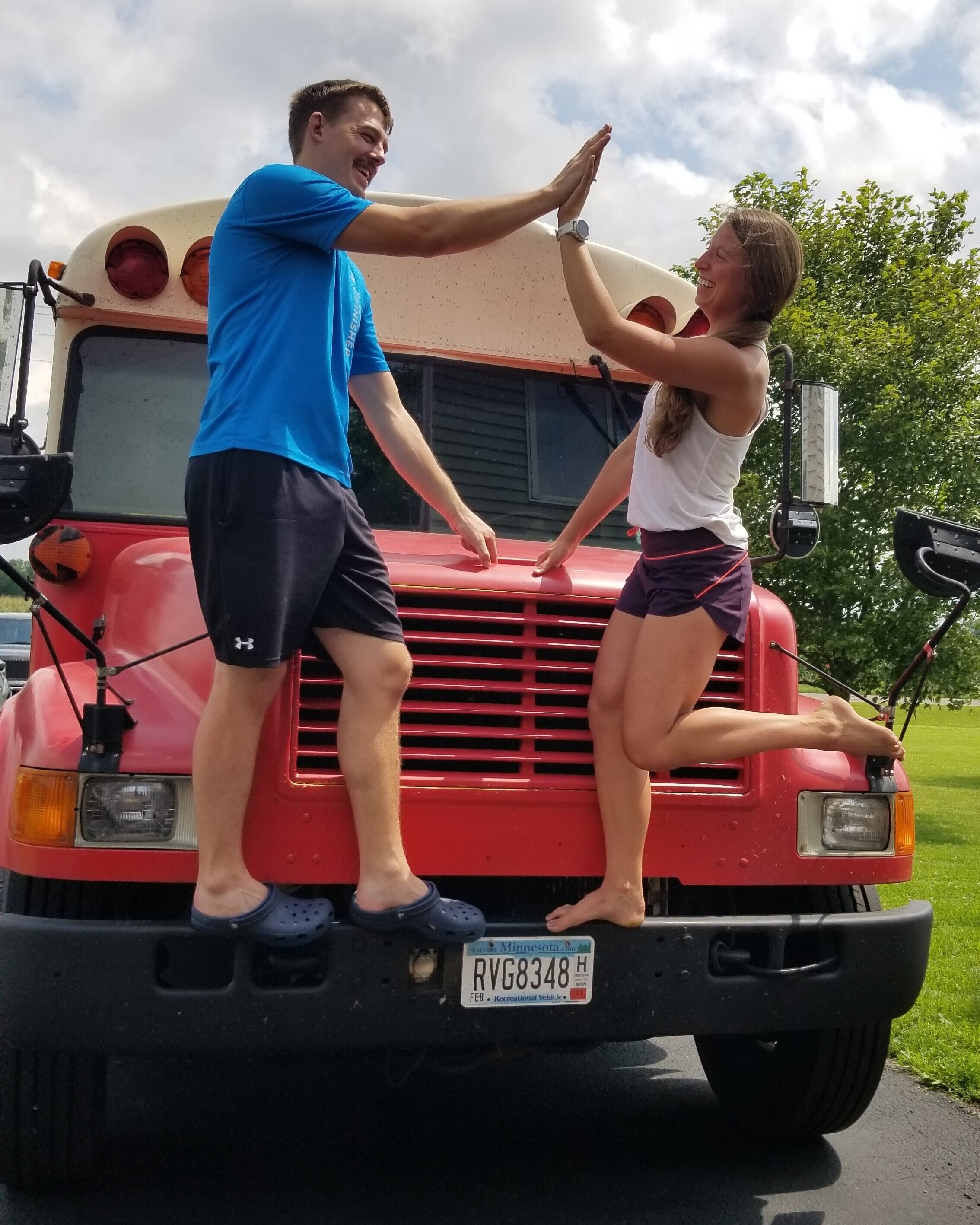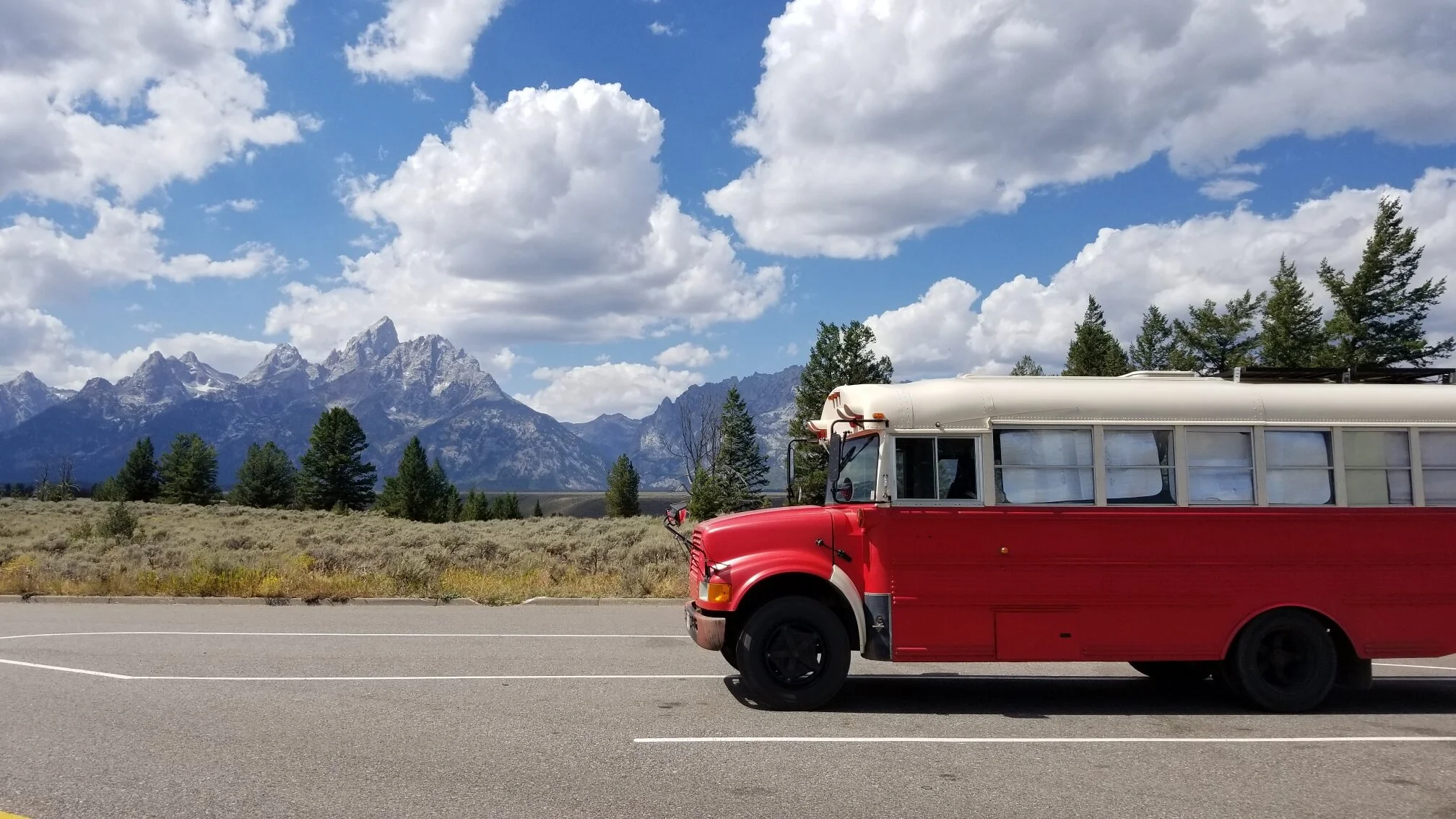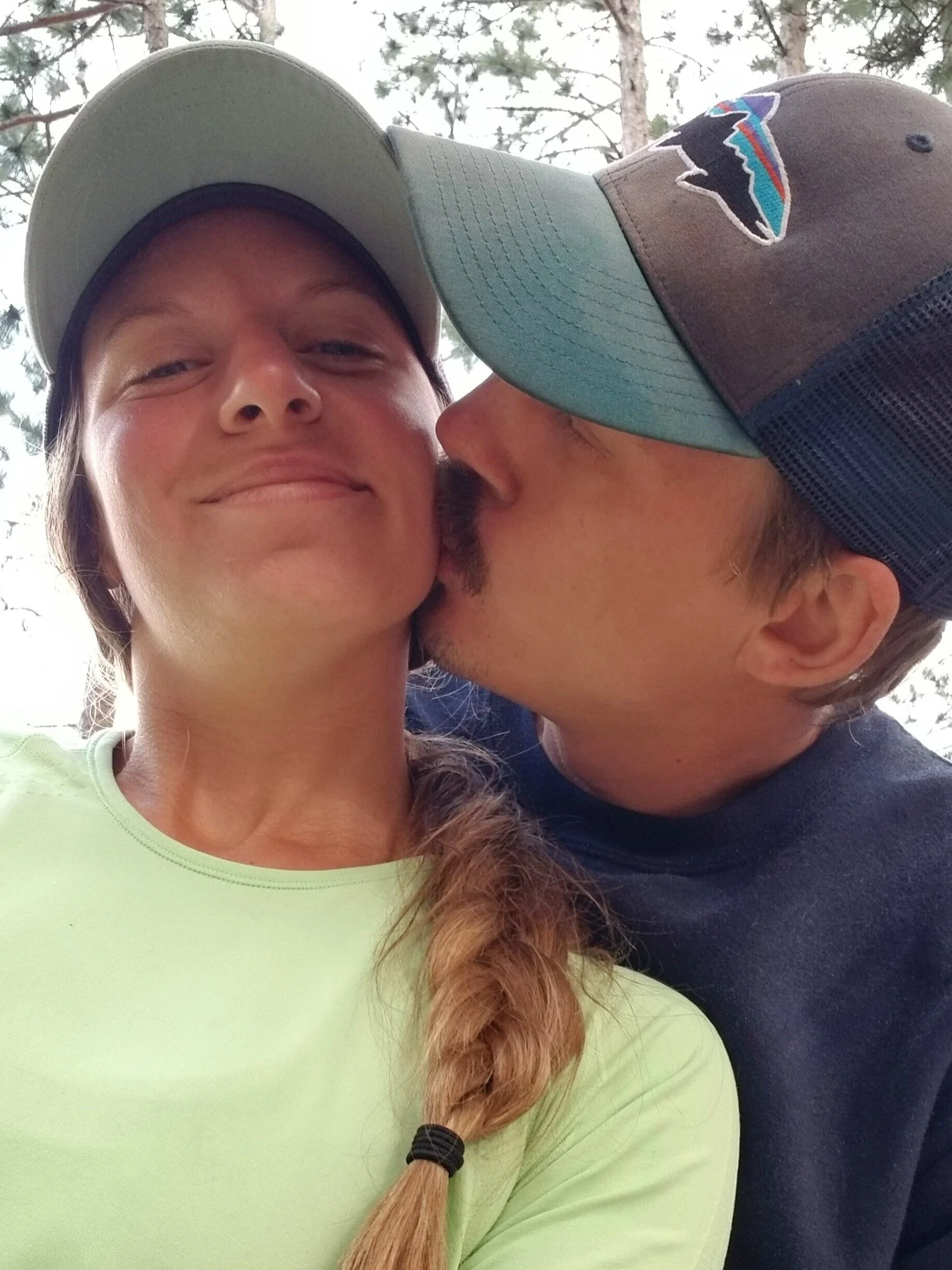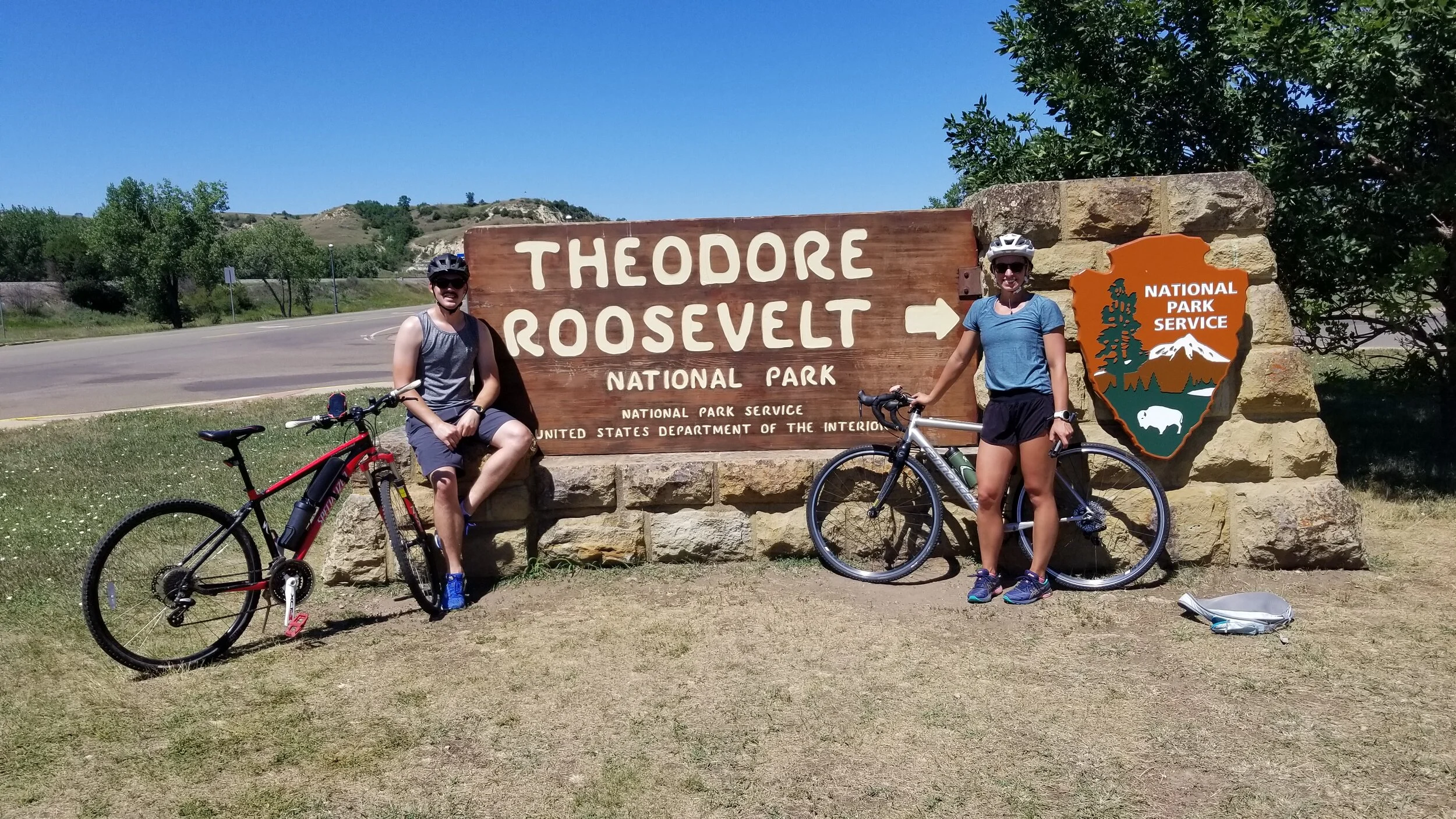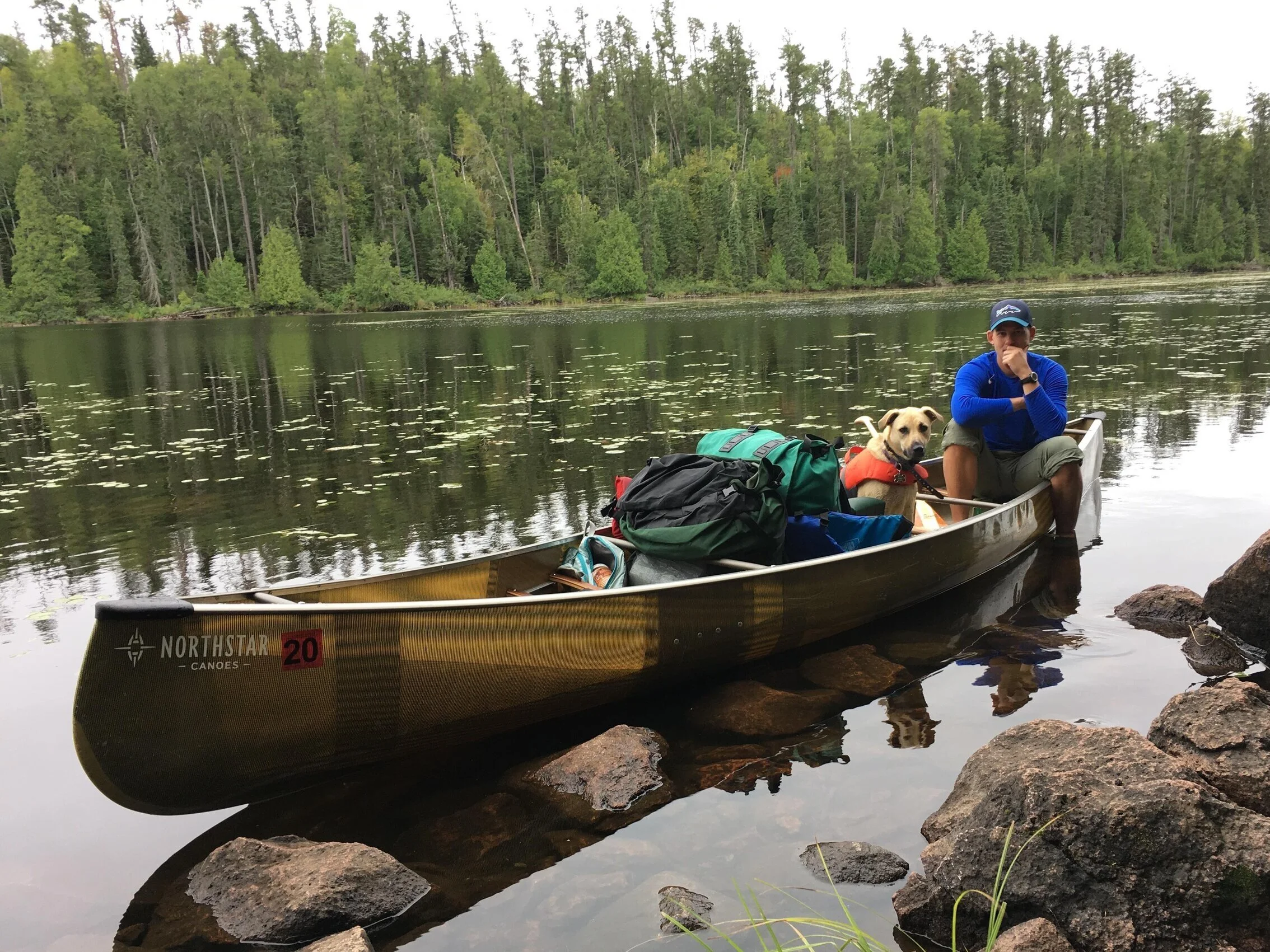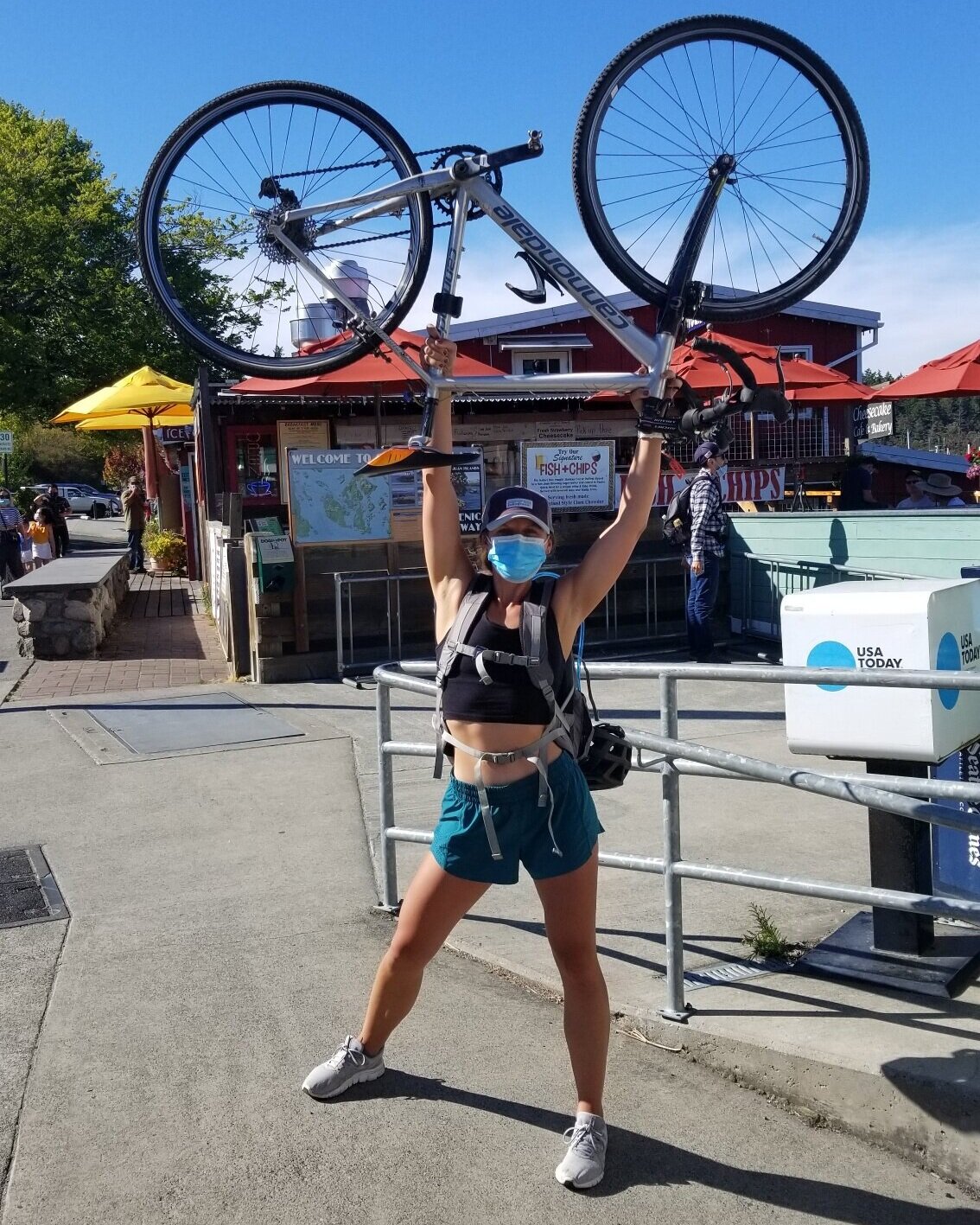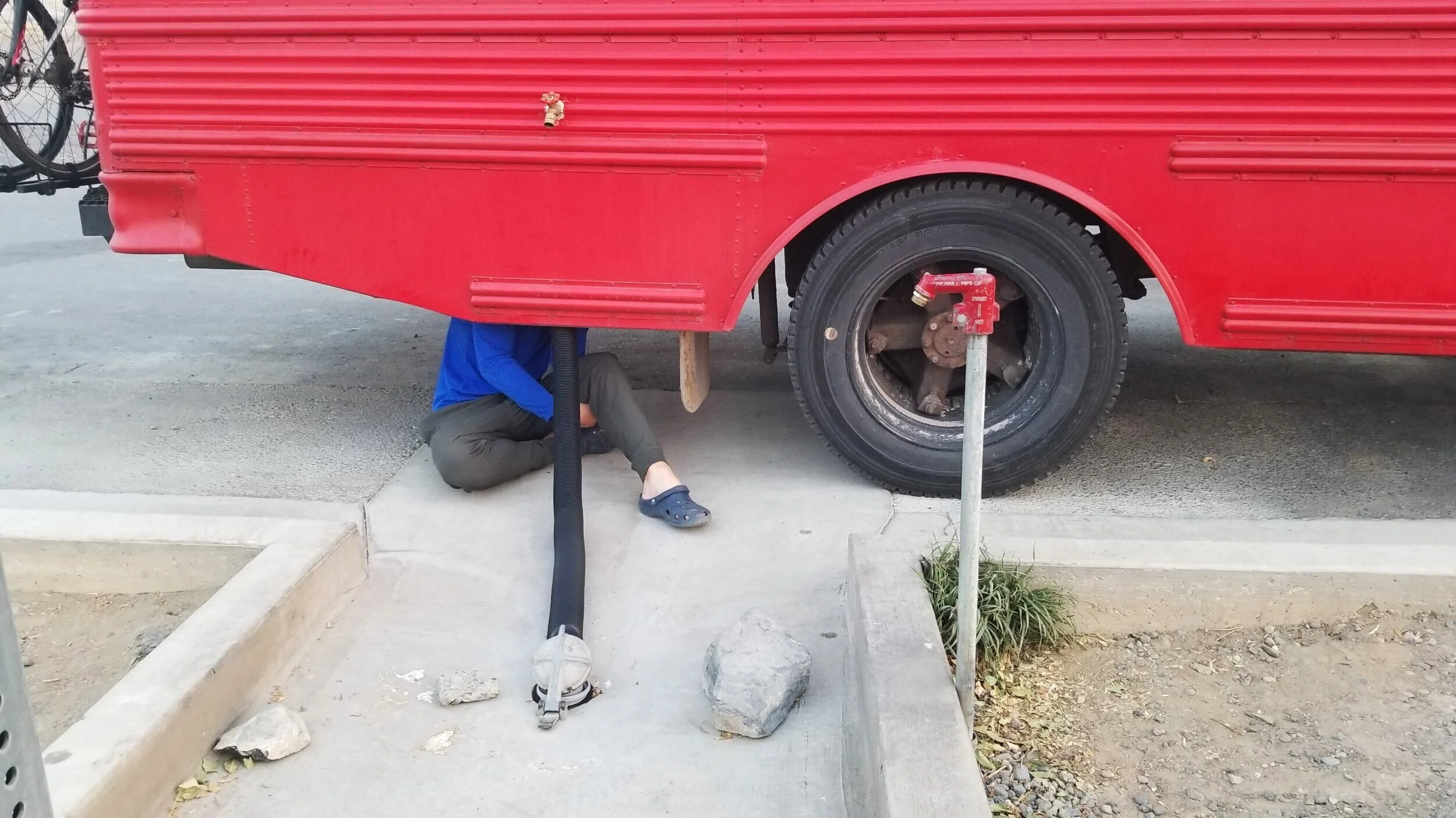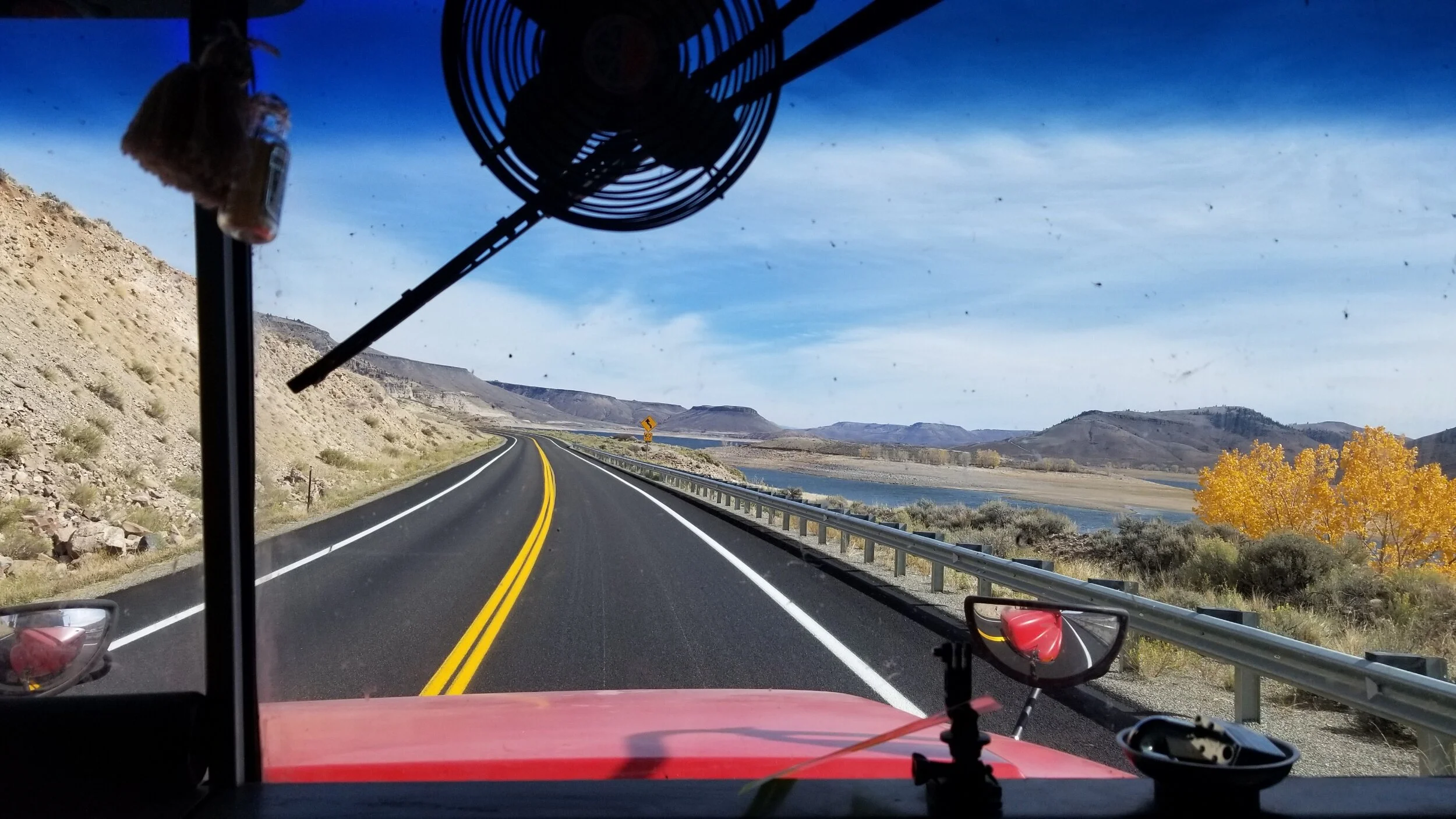Living out of a Bus Pre-Ed. - How We Are Making a 5m Road Trip Happen
Hi All - I’ve been getting quite a lot of questions about “The How” in regards to our upcoming Ruby road trip - so naturally, ya’ll gave me #INSPO to write about it :D
First, and probably most importantly, you need to know the WHAT to understand the HOW…
If you aren’t following us on Insta (shameless plug @somethingmoreproject) or in our circle, we are doing something you might see as crazy. Within about 2 weeks, we are taking Rubes cross-country; a 4-5 month National Park tour! With full time careers, being homeowners with urban chickens, there are some obstacles we needed to overcome to make something like this happen - as it’s not necessarily the most realistic to do while maintaining the drag of a 9-5. In this post, I will try to capture HOW we are making this happen!
Advanced planning:
This likely seems very “ad-hoc” to the outside, but this is something we have been planning for not days, not months, but nearly years. Both Jake and myself are engineers in the medical device space - Jake works FT for a gigantic operation & longtime industry leader (take a guess), and I work, well worked, for a mid-sized company, less established in the space, undergoing many changes. Both of us attempted to be proactive and began talking with leadership early on (like 6 months advance); both of us were very open with what we were asking for; both of us were dead-set on making this happen; AND both of our situations ended up very differently :)
NOTE: I know some companies make it clear that this is NOT something they would support (a 5m leave or 5m PT); I would approach that situation differently…like probably avoid the “advanced planning” of telling them you will be leaving. Know your leadership, company values, and how valued you are as an employee because it’s possible that this proactive planning could expedite your leaving.
Understand your options:
What we found through the process is that SO much of this is dependent on HR policies put in place at your company and more importantly, how willing your leadership is to fight for your request. As this isn’t a “classic” request in the US (although similar to the time of maternity leave - I think it’s frowned upon for companies to deny THAT leave request :)), I suggest having a strong relationship with your management if you really want to make this work. Both of our HR policies had an option for a “personal leave” - my policy was very open-ended and “management approval” dependent which can work in your benefit or not (see point about having leadership that values you and is willing to fight for you). But at the end of the day, knowing what your HR policy says and allows can only help you better understand your case and the likely outcome. I also found that some leaders really don’t want to “deal” with these requests and figuring them out, so having done some research to bring to the table can work in your benefit.
Know what you are asking for & be firm:
Jake recently accepted a new position, but has been with his company for about 5 years. Jake was requesting to work part time (about 20hrs/week) throughout the sabbatical which seemed to ease the minds of his leadership, although still came with challenges. However, continuing to offer support while on the road went over much better than cutting them off cold turkey.
For myself however, I have a 2-yr history with my company, recently had some management changes, and was not feeling very fulfilled with my current workload. Due to this and the desire to have some time to explore my own creativity, I requested a full leave (aka 0 hrs/week); I knew this request added risk, but I knew what I wanted and didn’t waver.
KNOW YOUR WHY.
KNOW YOUR POLICIES.
KNOW WHAT YOU ARE ASKING FOR.
KNOW WHERE YOU STAND WITH LEADERSHIP.
Both of us were willing to quit our jobs if it came down to it. For us, having this life experience we have looked forward to since it’s conception was more important than having a career to come back to. Maybe it’s our generation, but my job doesn’t define me and just as my role is replaceable, so is a job. I believe I will receive way more happiness and memorable experiences in this sabbatical than I would sitting at my desk writing change orders for a manufacturer. Know your WHY.
Knowing your dates is helpful; this was something that was challenging as we communicated a time frame and then COVID hit..shutting down nearly everything with many unknowns. Our timing was adjusted a bit with COVID and honestly where we were at with the Ruby build. BUT as soon as you are comfortable committing to a date, I suggest doing so and confirming the hard “this is my final day”. In my experience, until I gave leadership a date, they didn’t really take the request seriously or make any movement on “how do we make this work”.
So what ended up happening with work?
Jake - Jake ended up getting pushed to work more than 20 hrs/wk; he ended up committing to 25. Other than that, it came down to lots of discussions with leadership and peers on a re-definition of responsibilities, what would stay, what would go, and what would get put on hold. And for us, it’s mostly been figuring out HOW we can make the whole “having internet on the road” possible :)
Jen - as I said, our situations turned out very differently. My immediate manager and HR partner came back stating leaves like this would set a bad precedence in the company and is not something that has historically been “approved”. They offered me 30 days; as expected, I turned in my resignation the same day. They have shown interest in wanting to hire me back upon my return, however. It’s been a strange experience.
But, benefits without work?
Jake & I are not married yet, and actually recently had to push our wedding out to 2021 due to COVID and Canadian border closures, so this was something on our minds. Luckily, Jake’s company supports domestic partnership which we qualified for.
How are we doing it financially?
We get this question a lot as well. Jake & I are fortunate enough to be in a place where we have accrued a safe savings. We have also been planning this trip essentially since we bought the bus in April 2019 & consistently have a travel fund in the budget, so we have had some time to save. I have been fortunate enough to completely eliminate my debt (student loans, car payments, etc) which has really provided an opportunity to save. Although, together we do have debt, including a house payment that we plan to keep up with while frolicking - it’s all about creating a budget and understanding your expenses!
How do you know how much $$$ is “safe”?
If you want to be sure you don’t run out, there are some basic steps I suggest to ensure you have more than “rough estimates”:
Step 1) Track your spending - over the past months, we have done quite a lot of budget work. Of course, COVID has put an interesting twist on finances, but we have trended, tracked, and re-adjusted our spending as needed. Really, we created spreadsheets (both of us <3 spreadsheets) - wrote down all “recurring” payments we are obligated to (house payments, internet, phone, utilities, truck, Ruby work, etc) and made categories for all other expenses (was’sup MINT).
Step 2) Review your spending - once categorized, we reviewed the "essentialism” of the line item, and decided if this was a “need” or “want”, aka something we could get rid of.
Step 3) Create a budget - this probably seems out of order, but I find creating a budget pointless unless you KNOW where you are starting from and your spending habits. When you start with creating a budget, you will likely dramatically under-estimate things like restaurants, Target runs, and random grocery store stops to pick up that ONE item you forgot. ;) So, unless you are really after CUTTING spending, I think it’s best to track first, categorize the expenses, and make some future, realistic goals for yourself. We looked at the last several months of spending — took averages of each category — made goals (aka a budget) based on “essentialism” of category and what was in it — & BOOM.
Step 4) Create a budget for “sabbatical” - this is the trickier part as we don’t really have the “several month” history to go off of. As this will be a lifestyle change, review your current expenses and determine what is applicable and what isn’t while on the road. For us, house payments stayed on the list, but we also added an estimated cost of $30 / night, at 70% for Ruby camping, so our overall “Mortgage & Rent” category increased. (we don’t expect to be paying for a campsite every night, so that is where the 70% comes in). Another example is car insurance - we plan to keep both of our vehicles stationary while away. SO, we are putting freezes on our insurance which takes away from Auto expenses, but we will still have truck payments. We also want to leave some room for fun activities - so we added an entertainment budget for that. The grocery budget decreased because we’ll likely be cooking more often than not for convenience rather than elaborate meals. We track spending pretty vigorously on all of our vacays, so estimating this is somewhat of an educated guess based on similar travels. We also are planning to be doing a lot of outdoor activities which are typically pretty low cost. Knowing a high-level estimate on WHAT you want to do will help make this activity more accurate. Knowing you can camp for free on BLM land and that state and national parks are cheaper (and nicer) than private campgrounds can all be helpful things to know! I suggest doing some research at this phase if you have not traveled in a “like” manner previously or if it has been more than 5 years :)
Step 5) Check your savings / make a plan - weight your budget you created against your current financial situations. If the stars aren’t aligning, there are always ways to get there or adjust your trip! (i.e. take some risk in Robinhood, OBVIOUS choice - jk, probably not the most risk-free strategy) Things you can adjust: how long you are traveling, when you plan to leave (high or low season, push back to save a bit more, etc.), alternative/cheaper strategies (such as BLM camping), cut some spending (no fancy coffee for the next 6 mo), adjust work strategy to a part-time proposal to maintain an income, rent your house out while away — there are ALWAYS options! See Appendix A for some categories we considered when planning our road trip budget.
Taking all of these steps to plan gave us a lot of comfort with being firm on our decisions with our employers. We knew that even if our employers didn’t support our trip, we would be financially able. Which is exactly what ended up happening for Jen :)
Much love & happy trails,
Jen & Jakers <3
“There may not always be a will, but there is always a way”
Appendix A: Categories that were Essential for us to Understand
For transparency and to help provide a marker, our estimated budget for EACH MONTH is a bit under $5,100 (total of all categories below).
Monthly Bills
House mortgage, phone payments, lawn mowing service (aka building an 8th graders college fund)
Things we were able to rid: car insurances, cable service, house utilities, garbage
Monthly Debt Payments
Truck payment, land payments, student loans, etc.
Est. Fuel Cost based on Est. Milage (not Ruby’s winning category)
Assumption: ~$3 / gallon diesel AVG
Est. Milage: need an idea of route, rough guess here with a lot of safety factors as our route is very fluid; we used 1500 miles / month
Est. Accommodation
Assumption: $30 / night, 60-75% of the time
Est. Grocery
Assumption: somewhat similar to current grocery spending, but likely a bit lower
Est. Entertainment
Assumption: we’ll want to do fun things that cost money sometimes! Budget was based off of a road trip we took last fall which was included a couple National Parks, a Jackson Hole rodeo, horseback riding, you get it.
Ruby Fix-it Fund
Assumption: Ruby will break down at some point…$250 / month is our estimate here leaving a total of ~$1,000 for repairs.
